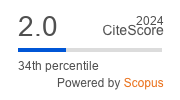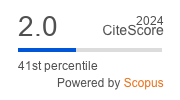| 2/2003 - 2 |
NA-VCS and MA-VVS Methods for DC LECsG. E. CHATZARAKIS, V. S. PAPANIKOLAOU, P. B. MALATESTAS, Panagiotis E. SINIOROS, G. S. DILINTAS |
| Extra paper information in |
| Click to see author's profile in |
| Not available online | Views: 1,469 |
Author keywords
dc LEC, inspection, mesh analysis, nodal analysis,, nonconvertible current source, nonconvertible voltage source, virtual current source, virtual voltage source
References keywords
References keywords will be displayed on the next page reload.
About this article
Date of Publication: 2003-04-02
Volume 3, Issue 2, Year 2003, On page(s): 12 - 19
ISSN: 1582-7445, e-ISSN: 1844-7600
Digital Object Identifier: Not assigned
Abstract
This paper presents two systematic methods for solving dc Linear Electric Circuits (LECs): Nodal Analysis with Virtual Current Sources (NA-VCS), applicable to planar or nonplanar LECs and Mesh Analysis with Virtual Voltage Sources (MA-VVS), applicable to planar LECs only. To apply these methods, the nonconvertible voltage or current sources (independent and dependent) are replaced by Virtual Current or Voltage Sources (VCS, VVS), respectively. Solving any dc LEC in this way is extremely systematic and straightforward, since most of the work is done by inspection and some of the matrix manipulations required are easily implemented. Since the proposed methods are well algorithmized, they can by used in most modern simulators of analog networks. |
| References | | | Cited By |
On-line references are not available - see the PDF file if available.
Faculty of Electrical Engineering and Computer Science
Stefan cel Mare University of Suceava, Romania
All rights reserved: Advances in Electrical and Computer Engineering is a registered trademark of the Stefan cel Mare University of Suceava. No part of this publication may be reproduced, stored in a retrieval system, photocopied, recorded or archived, without the written permission from the Editor. When authors submit their papers for publication, they agree that the copyright for their article be transferred to the Faculty of Electrical Engineering and Computer Science, Stefan cel Mare University of Suceava, Romania, if and only if the articles are accepted for publication. The copyright covers the exclusive rights to reproduce and distribute the article, including reprints and translations.
Permission for other use: The copyright owner's consent does not extend to copying for general distribution, for promotion, for creating new works, or for resale. Specific written permission must be obtained from the Editor for such copying. Direct linking to files hosted on this website is strictly prohibited.
Disclaimer: Whilst every effort is made by the publishers and editorial board to see that no inaccurate or misleading data, opinions or statements appear in this journal, they wish to make it clear that all information and opinions formulated in the articles, as well as linguistic accuracy, are the sole responsibility of the author.



